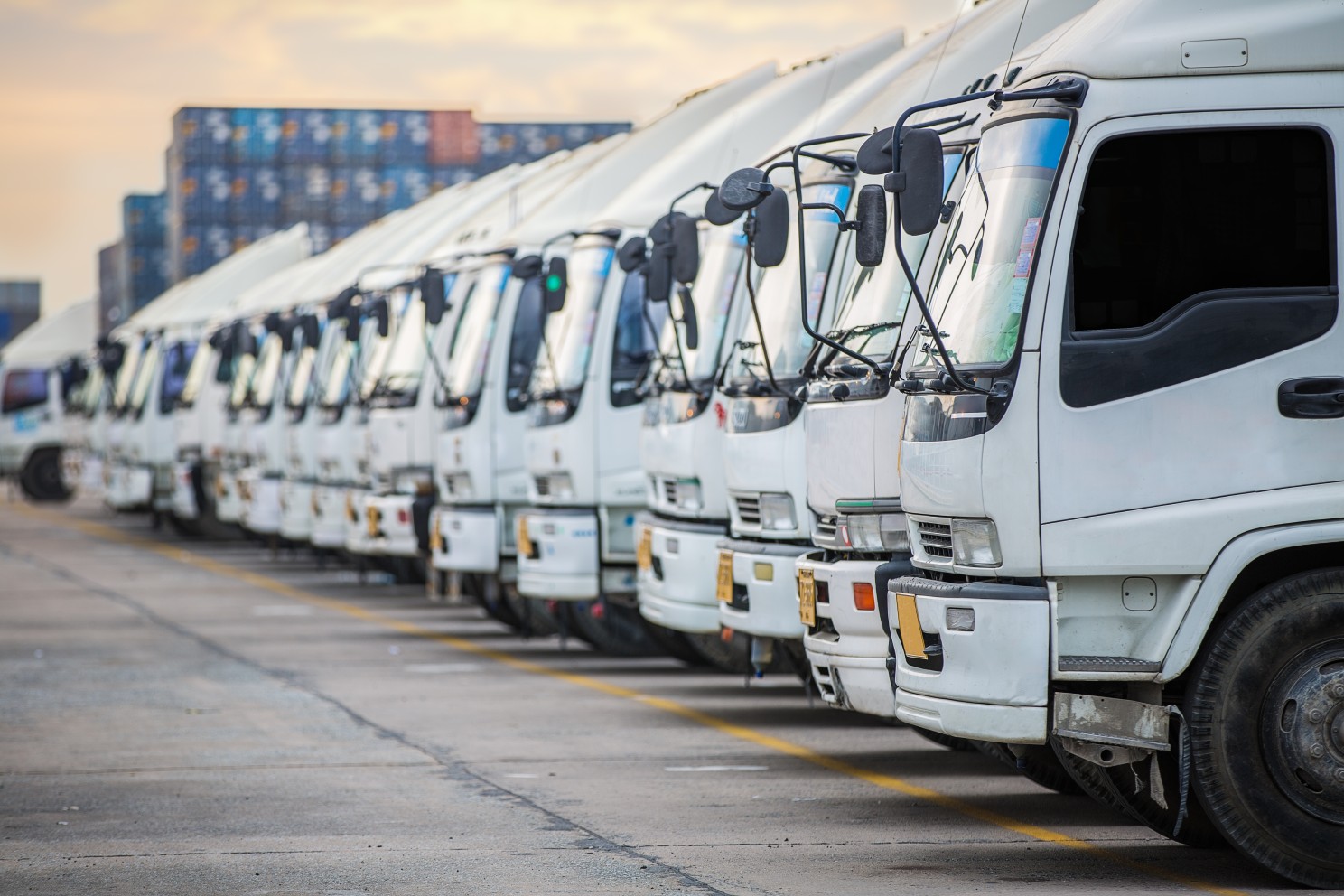
Susie Jones
Șoferii de vehicule grele contestă termenul "penurie de șoferi"
Creat: 15.08.2024
•
Actualizat: 18.12.2024
La 11 aprilie 2024, DfT a deschis o consultare privind măsurile de reducere a deficitului de conducători auto. Se caută propuneri pentru a permite unei persoane să își susțină testele teoretice și de manevră în afara șoselei înainte de a i se acorda dreptul provizoriu de șofer de vehicule grele.
De la Covid-19 și Brexit, industria a înregistrat o scădere a numărului de șoferi de vehicule grele. Pandemia a întârziat 30,000 testele pentru noii șoferi, iar Brexit-ul a afectat puternic companiile de flote - mulți șoferi de camioane europeni părăsind Regatul Unit.
Un raport din 2023 al SNAP sugerează că sectorul ar putea atinge un "[punct de cotitură] (https://snapacc.com/tipping-point/)" în următorii 10-15 ani. Având în vedere evoluția rapidă a industriei, comenzile online reprezintă una dintre cererile cu cea mai rapidă creștere - în combinație cu îmbătrânirea forței de muncă, nevoile industriei vor depăși deficitul de șoferi calificați.
Ce cred șoferii de camioane?
Pe [social media] (https://www.facebook.com/snapaccount?locale=en_GB), SNAP a solicitat șoferilor să își exprime opiniile cu privire la propunerea stabilită de DfT. Mulți șoferi nu au comentat schema, însă 72,5% au contestat termenul "penurie de șoferi", catalogându-l drept alarmist.
În schimb, aceștia au afirmat că următoarele motive determină șoferii cu experiență să părăsească industria și, în același timp, descurajează noii candidați:
Salarii
Din cei 72,5%, 28% au sugerat că salariul scăzut a fost un factor de descurajare. Șoferii de pe paginile de social media ale SNAP au sugerat că ar putea câștiga mai mult în diferite profesii:
"Am permis de conducere pentru vehicule grele, dar nu doresc să-l folosesc. În prezent, câștig mai mult pe oră ca instructor auto. Nu este deloc o lipsă de șoferi."
"Plătiți șoferii mai bine și oferiți-le facilități mai bune."
Au existat concepții greșite cu privire la salariile șoferilor de camioane în Regatul Unit - opinia fiind că șoferii de camioane câștigă mai mult decât lucrătorul mediu. Potrivit [National Careers] (https://nationalcareers.service.gov.uk/job-profiles/large-goods-vehicle-driver), salariul mediu pentru un șofer de TIR în Regatul Unit este cuprins între 22.000 și 40.000 de lire sterline - șoferii cu experiență câștigând cel mai mult.

Facilități
Facilitățile au fost, de asemenea, analizate de mulți - 20% au dat vina pe standardele slabe pentru faptul că au îndepărtat șoferii calificați. Standardul facilităților din stațiile de camioane din Regatul Unit a fost analizat foarte atent de către cei din industrie, mulți afirmând că acestea nu merită banii.
DfT a luat măsuri semnificative prin schema de subvenționare de 6 milioane de lire [HGV Parking and Driver Welfare] (https://www.smmt.co.uk/2024/05/first-class-facilities-truckstops-to-be-upgraded-with-16-5m-funding/#:~:text=Under%20the%20plans%2C%2038%20truckstops,significantly%20upgrade%20facilities%20for%20drivers.) - susținută de alte 10,5 milioane de lire sterline din partea industriei. Schema va investi în 38 de stații de camioane din Anglia pentru a moderniza facilitățile pentru șoferi, inclusiv noi dușuri și restaurante, precum și o mai bună securitate.
În plus față de facilitățile modernizate, se speră că proiectul va crea aproximativ 430 de noi locuri de parcare pentru camioane, ceea ce va duce la reducerea numărului de parcări de așteptare și la umplerea spațiilor până seara devreme.
Lipsa locului de muncă
De asemenea, 20% dintre șoferi au explicat că au permis, dar nu își pot găsi un loc de muncă. Conform Office for National Statistics (ONS), în Regatul Unit există peste 183 000 de locuri de muncă pentru șoferi de vehicule grele. În ciuda acestui fapt, în fiecare regiune există oportunități de angajare diferite, ceea ce duce la o cerere inegală în Regatul Unit. Mai mulți șoferi și-au împărtășit experiențele de luptă pentru a găsi un loc de muncă:
"Am o clasă unu de șapte luni și nu pot găsi un loc de muncă. Mi-ar plăcea să știu unde este deficitul."
"Ce penurie? Nu există prea multă muncă disponibilă."
Certificat de competență profesională pentru șoferi
10% dintre cei care nu au fost nici de acord, nici în dezacord cu termenul "penurie de șoferi" au declarat că [Certificatul de competență profesională pentru șoferi (CPC)] (https://www.gov.uk/driver-cpc-training/getting-your-driver-cpc-card) a jucat un rol esențial în reducerea numărului de șoferi de vehicule grele.
Introdus în 2009, CPC își propune să îmbunătățească siguranța rutieră, profesionalismul și conștientizarea problemelor de mediu - de asemenea, asigură că șoferii sunt la curent cu toate cerințele legale, de sănătate și de siguranță. Rezultatele unei consultări referitoare la revizuirea politicii privind CPC au arătat că 47% dintre șoferii de vehicule grele de marfă au afirmat că acesta este ineficient sau foarte ineficient. Pe rețelele de socializare ale SNAP, un șofer a comentat:
"Scăpați de CPC și voi face ture. Nu plătesc pentru a face 35 de ore, învățând să fac ceea ce mi-am petrecut ani de zile făcând în fiecare zi."
Guvernul a prezentat o serie de modificări ale CPC pentru a spori flexibilitatea la reînnoirea și redobândirea calificării. Printre modificările aduse duratei cursurilor, guvernul va dezvolta mai mult conținut de bază al cursurilor, alături de Agenția pentru Standarde pentru Șoferi și Vehicule.
Factorii externi, cum ar fi Brexit și COVID-19, combinați cu problemele legate de industrie, au avut un impact semnificativ asupra ratelor de ocupare a forței de muncă în sectorul transportului rutier. Într-un mediu în continuă evoluție, industria trebuie să continue să facă schimbări acolo unde este necesar pentru a atrage și păstra mai mulți șoferi.
Despre SNAP
SNAP este piața digitală - conectează călătoriile flotelor de la depozit la destinație în întreaga Europă prin tehnologie, securitate și o rețea europeană extinsă.
Serviciul este utilizat la fiecare 13 secunde de către unul dintre cei peste 190 000 de șoferi de camion care utilizează sistemul de plată SNAP. Tranzacțiile au loc în cadrul unei rețele de peste 600 de parteneri de servicii pentru camioane din întreaga Europă. [Înscrieți-vă gratuit] (https://snapacc.com/sign-up/)


